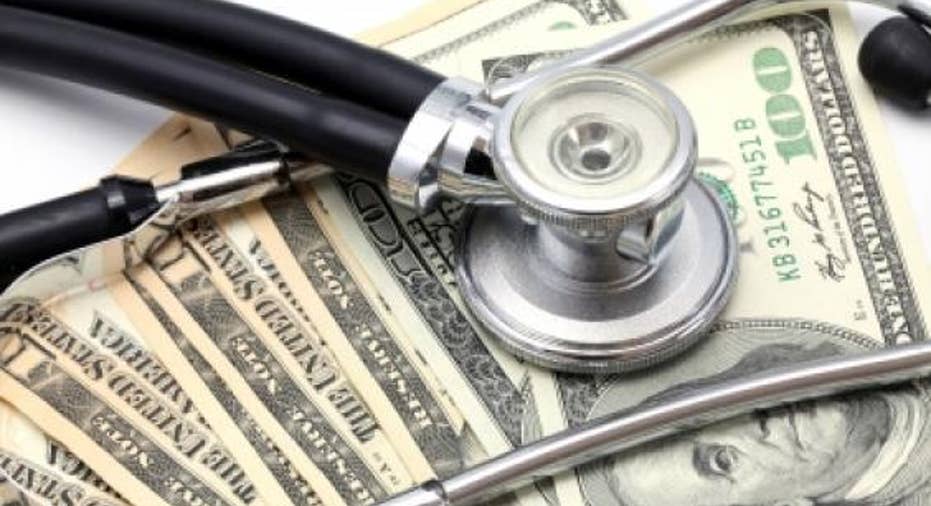How To Negotiate Your Medical Bill

When Dr. Jeff Rice, a Nashville radiologist, was looking for a hospital for his son’s foot surgery, he was surprised to find a huge disparity in prices. The first institution he contacted said the price would be $15,000. Surprised, he started to shop around and contacted other surgeons he knew to be good at other facilities. And, just three blocks away at another hospital, he was quoted a price of just $1,500 – a tenth of the price.
Don’t be surprised – such disconnects are common. And, according to Rice, he has no regrets choosing the cheaper institution and doctor. His son’s recovery went as scheduled and it all worked out just as he planned. He says the differences in prices aren’t necessarily connected to quality of care and are instead the result of the prices that different insurers are able to negotiate with providers. Other factors can come into play, he says, such as whether the hospital you choose is a teaching hospital or takes on a lot of uninsured patients, but one of the biggest components is your insurers’ ability to drive down costs. It’s that experience that caused Rice to start www.healthcarebluebook.com, where people can find out for free the average cost of procedures, tests and surgeries all over the country. By simply filling in your zip code, you can access Rice’s impressive data base that can guide you in knowing whether you’re getting a fair price.
Getting that fair price, though, will require you to negotiate. And, that can be easier said than done. Here are tips to negotiating medical prices:
- Get the facts. In the New York city area, prices for a colonoscopy can range from $2,000 to $25,000. And, the differences in those tests? Not a thing. Go to www. healthcarebluebook.com or www.newchoicehealth.com to compare prices on everything from drugs to surgeries. In this case, knowledge is power.
- Negotiate prices before receiving treatment. Once you put your fees on paper, it’s all that much harder to negotiate prices because a bill is considered a legal document in the health care industry. Dr. Pamela Gallin, a 30-year veteran of the business and a pediatric opthamologist at Columbia Presbyterian Hospital in New York City says when you negotiate is as important as how you negotiate. Offering speedy payment – say before the billing even occurs – can net you 50 percent in savings, she says. And, it’s all that more difficult to get employees working in the hospital’s billing center to lower prices that have already been entered into the system. That goes doubly true for uninsured patients. One community hospital board member says that government billing practices encourage hospitals to boost the cost of services to patients with no insurance by as much as half. By simply calling and asking for a price reduction, the uninsured can net big savings, he said.
- Document your doctor visit. Trips to the hospital are often stressful and time consuming. It’s likely that you’re not paying attention to all the medical lingo about what procedures you’re going to get. But that’s where many people can save money: By paying attention! While you’re at your doctor’s office, take notes or have a family member take notes about which doctors came to visit and when, what tests were ordered and what supplies were used.
- Ask for an itemized statement when you leave. Billing errors are commonplace – either because staff fills in incorrect coding or charges are duplicated. Dr. Gallin, says that the complicated coding used by insurers is one of the things that can create billing errors because it’s challenging even for doctors and their staff to understand. And that makes it all the more important to review your itemized statement so that you can be sure you were charged for the items you documented in your doctor visit.
- Review your bill. Here’s where the pedal hits the metal. Compare your notes from your visit with the itemized statement and the final bill that has been through the insurers’ offices. By now you may have already caught differences between the itemized statement and your own notes from the doctor’s visit. But now, you should look for any disconnect between the doctor’s office and that of the insurer’s. If you still feel there are miscellaneous charges or the bill is simply too expensive, contact the hospital’s billing department for an explanation as well as your insurer to see what you are covered for.
- Contact a medical billing advocate. If all else fails, call in the experts. Negotiating medical bills is tricky business. Many consumers turn to professional advocates like www.medicalcostadvocate.com or www.billadvocates.com to get unaffordable bills lowered. Experts say medical billing advocates are familiar with hospital and insurer systems. They have a relationship with people inside the health care establishment and can usually get in touch with the right people, which can be difficult for us mere mortals. But there services are not free. Most billing advocates charge 35 percent of the reduced price if their negotiating is successful, or they may charge an hourly fee. If they are unable to get your bill lowered, they should charge you nothing at all. Ask about that upfront.



















